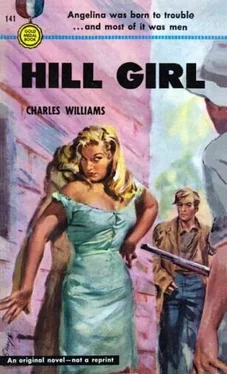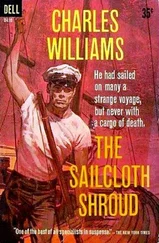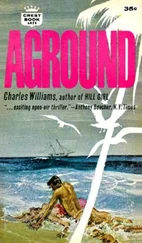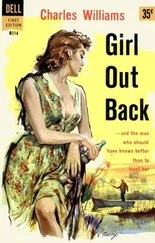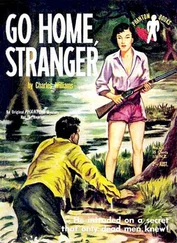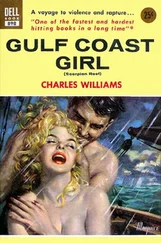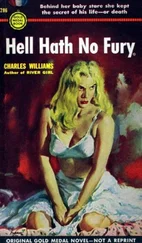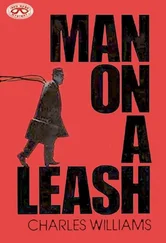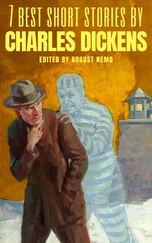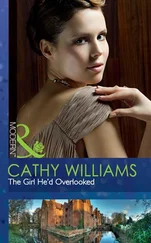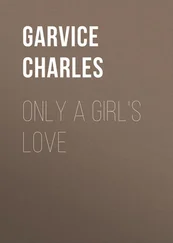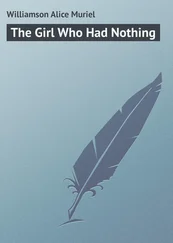Charles Williams - Hill Girl
Здесь есть возможность читать онлайн «Charles Williams - Hill Girl» весь текст электронной книги совершенно бесплатно (целиком полную версию без сокращений). В некоторых случаях можно слушать аудио, скачать через торрент в формате fb2 и присутствует краткое содержание. Год выпуска: 2010, Жанр: Старинная литература, на английском языке. Описание произведения, (предисловие) а так же отзывы посетителей доступны на портале библиотеки ЛибКат.
- Название:Hill Girl
- Автор:
- Жанр:
- Год:2010
- ISBN:нет данных
- Рейтинг книги:3 / 5. Голосов: 1
-
Избранное:Добавить в избранное
- Отзывы:
-
Ваша оценка:
- 60
- 1
- 2
- 3
- 4
- 5
Hill Girl: краткое содержание, описание и аннотация
Предлагаем к чтению аннотацию, описание, краткое содержание или предисловие (зависит от того, что написал сам автор книги «Hill Girl»). Если вы не нашли необходимую информацию о книге — напишите в комментариях, мы постараемся отыскать её.
Hill Girl — читать онлайн бесплатно полную книгу (весь текст) целиком
Ниже представлен текст книги, разбитый по страницам. Система сохранения места последней прочитанной страницы, позволяет с удобством читать онлайн бесплатно книгу «Hill Girl», без необходимости каждый раз заново искать на чём Вы остановились. Поставьте закладку, и сможете в любой момент перейти на страницу, на которой закончили чтение.
Интервал:
Закладка:
Hill Girl
by
Charles Williams
1951
One
I stopped the Ford on a bench halfway down a long, gentle hill and got out and stretched and felt suddenly warm outside and inside; the morning sun was climbing higher now, and I was almost home. It was October and the colors were running down the hillsides and along the little creek bottoms like a fire that couldn’t make up its mind where it wanted to go.
There had been a light frost and now all that was left of it was where the shadows still lay a little dark and cool behind the old fence posts and in the burrow pit beside the dry red clay and dust of the road. The dewberry vines didn’t have any leaves now and their runners were a dead tangle, white-rimmed with frost in the shade and shiny and black and wet where the sun had struck them.
Part of the big field on the left had been in cotton that year, and I could look down the rows for a long way until they curved around, following the contour of the slope and the terrace rows. The stalks were dead now, and bare, and the sharp bolls empty, and they were all wet with the melted frost. It was the old Eilers place and I wondered idly if Sam Harley were still farming it.
The rest of the field had lain fallow for years and was grown up in weeds and sassafras bushes and there were persimmon sprouts waist-high, and now, as I was watching it, I saw a bird dog casting through it, coming up the hill toward the road. He was still a long way off, but was easy to see, a big black-and-white pointer, and he was beautiful to watch, quartering up the field in long casts with his head high, and the sight of him made me homesick and happy at the same time and I hated the years I had been away.
Soon I saw the man behind him, and then the dog froze into a beautiful point. The man came up,, with the shotgun held ready, and went in, kicking at the weeds, and the birds came boiling up with that sudden roar, as they always did, the sound carrying across the stillness of the morning to me as if they were only fifty yards away. The man’s gun came up and he shot, all with one fluid motion, and I saw one bird collapse and fold up in the air. He shot again and missed. The covey scattered, and almost mechanically I marked a pair of them down in a tangle of vines and sassafras near the road.
The man came on up the slope toward the road and I began to think there was something vaguely familiar in his big figure and the long, slouching walk. He was dressed in a bleached-out blue shirt, the worn, faded coat of an old blue serge suit, and patched overalls that were tucked into knee-high laced boots. Over his shoulder was the strap of one of those little canvas bags we used to carry our books to school in. When he was close enough to me so I could see his face I saw it was Sam Harley, and I walked across the road and climbed through the rusty wire of the fence to meet him. He hadn’t changed much that I could see, and then I grinned suddenly to myself and wondered why I had expected some great change in a period of two years in a man who was past forty. He still had the slightly flat nose and high cheekbones and the very shiny black eyes that gave his face a suggestion of primitive strength.
I waved at him and said, “Hello. How’s hunting?”
“Howdy,” he replied, politely enough, but with no great warmth or a great deal of interest, and I could see his black eyes faintly suspicious under the brim of the shapeless old felt hat he wore. It was obvious he didn’t recognize me.
“I’m Bob Crane,” I said, and held out my hand. Then recognition came into his eyes and he grinned widely, exposing well-shaped but darkly tobacco-stained teeth, shifted the gun to the crook of his left arm, and shook my hand warmly.
“I’d never a’ knowed you, Bob. You’ve shore growed. Le’s see, how long’s it been since I seen you?”
“About two years, I think.”
He continued to grin at me happily, and at the same time just a trifle self-consciously, with the lack of poise so characteristic of the people who live off in the bottoms and rarely meet people other than the neighbors they have known all their lives.
“Been a little over two years, I reckon,” he went on, feeling under some compulsion to be saying something. “You recollect the syrup-makin’ down at Sully’s an’ we all went possum huntin’ afterward? That was two years ago about the first of the month.”
“I guess you’re right,” I agreed, looking about for the dog and wishing he would come in. Pointers are a weakness of mine. Then I saw him, coming back down the slope.
“Is that old Buck?” I asked.
“Yeah,” he replied. “Belle’s dead. Died last spring. She was awful old.”
“Two of your birds went down in that clump over there. I marked them down just after you shot. In there, Buck!”
I waved the dog in toward the vines, which were about sixty or seventy yards away, up the hill and near the road. He wheeled and started in and then froze, beautifully, in the sunlight, with his tail straight and rigid, one foot off the ground and his head swung around to the right.
I grinned at Sam and there was a happy pride in his eyes as he smiled back at me. We both laughed then, and I said, with grave understatement, “That’s a pretty good dog, Sam. I’ll give you twenty-five dollars for him.”
He pretended to consider the offer seriously, pulling off his old greenish-black hat and scratching his head slowly, and then replied, “Well, Bob, I don’t rightly see how I could let him go for that. Him bein’ so well trained and all.”
I shook my head in affected disbelief that this generous offer had been refused. I knew, of course, that he wouldn’t have taken five hundred for the dog, even though the sum probably represented as much as he made off the Eilers place in a year. You love hunting dogs, or you don’t.
“You’d better get in there.” I waved toward Buck. “He’s not going to hold it all day.”
“Now, Bob, you know him better’n that.” He smiled, trying to keep some of the pride out of his voice because of an ingrained reluctance to appear boastful before someone outside his immediate circle. After all, I lived in town.
“Here.” He handed me the gun. Perhaps he had seen me eying it hungrily.
I started to protest, but then I had it in my hand and I was going toward Buck. I made a lot of noise as I kicked in through the old sandburs and vines and high grass, and then one of the birds rocketed out right from under my feet, twisting around toward the right and downhill, and I swung around toward him and the gun caught him and passed slightly and I shot and missed. I never could hit a bird going to the right. I don’t know why.
When I shot, the other one got up, fifteen yards ahead of me, the roar of his beating wings seeming almost a continuation of the noise of the gun, and I swung back and he was going away and climbing, a shot I very seldom miss, and I let go with the left barrel and he seemed to stop in the air as though there had been a string on him and I had pulled it back. And there was that old sharp thrill in it, that feeling that is part fierce exultation and part a sudden pang of remorse or something like it. A bob-white quail is a gallant little bundle of dynamite and no one should want to kill one, but you do, and in that frozen second when he stops in the air and you feel the pride of a clean kill there is also that sharp stab that is almost regret and then it is gone and there is only pride.
For the first time since they had helped me up off the canvas there in Jersey City, some of the bitterness and the galling taste of defeat had begun to wear off. This was home and I was glad I was back.
I broke the gun and took out the two empties and before I threw them down I held them up to my nose and smelled the burned powder. I took the bird from Buck and patted him on the head and he seemed to feel all right then about giving it to me instead of going all the way back to Sam with it.
Читать дальшеИнтервал:
Закладка:
Похожие книги на «Hill Girl»
Представляем Вашему вниманию похожие книги на «Hill Girl» списком для выбора. Мы отобрали схожую по названию и смыслу литературу в надежде предоставить читателям больше вариантов отыскать новые, интересные, ещё непрочитанные произведения.
Обсуждение, отзывы о книге «Hill Girl» и просто собственные мнения читателей. Оставьте ваши комментарии, напишите, что Вы думаете о произведении, его смысле или главных героях. Укажите что конкретно понравилось, а что нет, и почему Вы так считаете.
